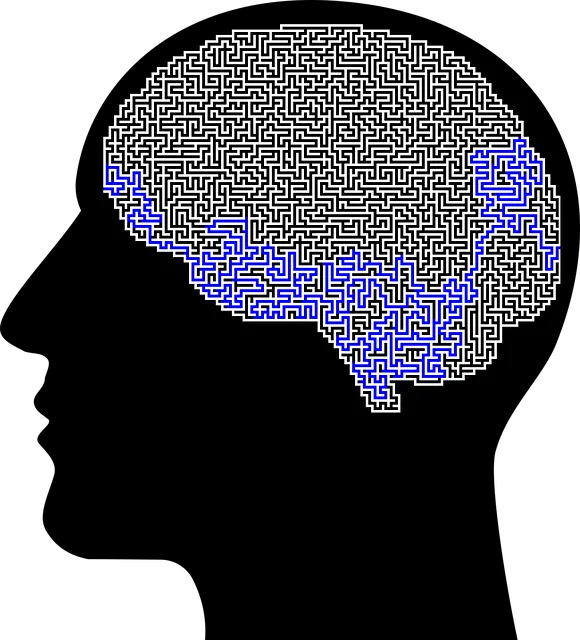The Boulder Kaiser Permanente Mental Health Access Center is at the forefront of developing user-centric mental wellness apps, driven by increasing awareness and digital accessibility. These apps integrate evidence-based practices like CBT and mindfulness training, focusing on personalization and adaptability to diverse needs. By prioritizing privacy, security, and ethical guidelines, the center ensures these platforms enhance user experiences while fostering long-term mental well-being. Their innovative approach leverages technology to make professional mental health support more accessible and effective for a broad spectrum of individuals.
Mental wellness apps are gaining prominence as powerful tools for managing and improving psychological well-being. With a growing demand for accessible therapy, this article explores the crucial aspects of developing effective digital mental health solutions. From understanding user needs to integrating evidence-based practices, we delve into strategies for creating user-centric apps. Additionally, privacy, security, and ethical considerations are addressed, highlighting the essential role of organizations like Boulder Kaiser Permanente Mental Health Access Center in setting industry standards and shaping innovative app design.
- Understanding Mental Health App Needs: A Comprehensive Overview
- Designing User-Centric Apps for Effective Therapy and Support
- Integration of Evidence-Based Practices in Digital Wellness Platforms
- Privacy, Security, and Ethical Considerations in Mental Health App Development
- The Role of Boulder Kaiser Permanente Mental Health Access Center in Shaping Future Apps
Understanding Mental Health App Needs: A Comprehensive Overview

The demand for mental wellness apps has surged, driven by a growing recognition of the importance of mental health and increased access to digital solutions. Institutions like the Boulder Kaiser Permanente Mental Health Access Center play a pivotal role in understanding the unique needs of their users, ensuring that app development aligns with evidence-based practices and current trends in mental healthcare. Comprehensive insights into user behaviors, challenges, and preferences are crucial for creating effective tools that support emotional well-being.
By integrating Empathy Building Strategies and Communication Strategies, mental health apps can foster deeper connections between users and their care providers. Additionally, addressing Burnout Prevention through interactive features and resources empowers individuals to manage stress and maintain resilience in today’s fast-paced world. These considerations collectively contribute to the development of robust applications that cater to diverse mental wellness needs, making professional support more accessible and engaging for a wider audience.
Designing User-Centric Apps for Effective Therapy and Support

In designing user-centric mental wellness apps, it’s paramount to place the user at the heart of the development process. Apps like those offered by the Boulder Kaiser Permanente Mental Health Access Center aim to provide effective therapy and support tailored to individual needs. This involves creating intuitive interfaces that guide users through self-awareness exercises and emotional regulation techniques, ensuring a seamless and engaging experience. By incorporating features for stress management, these apps can help users cultivate healthier coping mechanisms in the comfort of their homes.
The success of such applications lies in their ability to adapt to diverse user preferences and requirements. Incorporating interactive elements, personalized feedback, and regular progress tracking can significantly enhance their effectiveness. User-centric design also emphasizes accessibility, making sure that the apps are inclusive and cater to different levels of mental health needs, from general wellness to more specialized support.
Integration of Evidence-Based Practices in Digital Wellness Platforms

The integration of evidence-based practices is revolutionizing digital wellness platforms, making mental health care more accessible and effective. Boulder Kaiser Permanente Mental Health Access Center has been at the forefront of this movement, employing strategies such as cognitive behavioral therapy (CBT), mindfulness training, and self-care routine development for better mental health. These practices have shown significant promise in improving users’ well-being, managing stress, and fostering inner strength.
Moreover, conflict resolution techniques are seamlessly woven into these platforms to address interpersonal challenges that often contribute to mental distress. By combining evidence-based methods with user-friendly digital interfaces, these apps cater to a wide range of individuals seeking support for their mental health. This approach ensures that users have access to professional guidance and tools for personal growth, ultimately enhancing their overall quality of life.
Privacy, Security, and Ethical Considerations in Mental Health App Development

Privacy, security, and ethical considerations are paramount in mental health app development. As more individuals turn to digital platforms like Boulder Kaiser Permanente Mental Health Access Center for support, developers must ensure user data is protected with robust encryption and secure storage methods. This includes safeguarding sensitive personal information and conversation histories to maintain trust and confidentiality.
Beyond technical safeguards, ethical guidelines must be strictly adhered to. App developers should prioritize transparency in their privacy policies, clearly communicating how data is collected, used, and shared. Additionally, incorporating Empathy Building Strategies and Mental Wellness Coaching Programs Development within the app can enhance user experiences while promoting Mental Health Awareness.
The Role of Boulder Kaiser Permanente Mental Health Access Center in Shaping Future Apps

The Boulder Kaiser Permanente Mental Health Access Center plays a pivotal role in shaping the future of mental wellness app development. As a leading provider of mental health services, the center offers a wealth of knowledge and expertise in areas such as Anxiety Relief, Coping Skills Development, and Mental Health Education Programs. Their innovative design approach is rooted in understanding user needs, leveraging cutting-edge technology, and integrating evidence-based practices to create effective digital solutions.
By studying the success stories and challenges faced by individuals who have benefited from their services, developers can gain valuable insights into what makes an app truly impactful. The center’s commitment to Mental Health Education Programs design ensures that future apps not only address symptoms but also promote long-term mental wellness. This holistic perspective positions Boulder Kaiser Permanente as a game-changer in the digital mental health space, guiding the development of tools that are both accessible and therapeutic.
The development of mental wellness apps has gained significant momentum, driven by the need for accessible and effective therapy solutions. By integrating evidence-based practices and addressing critical privacy and ethical concerns, these digital platforms offer promising avenues for improved mental health outcomes. The Boulder Kaiser Permanente Mental Health Access Center plays a pivotal role in shaping the future of this technology, ensuring that apps prioritize user-centric design and tap into proven therapeutic methods. As the field advances, ongoing research and collaboration will be essential to meet the diverse needs of users seeking support for their mental wellness journeys.






